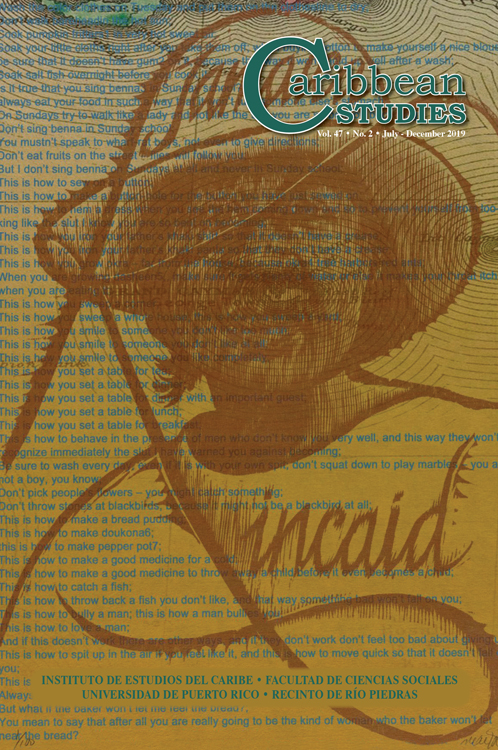Abstract
A concern of tourism scholars and policy designers is how to measure the level of success of a tourist destination in its practice, especially when they have countries with homogeneous offers and different results. This is an issue that has been difficult to address. In particular, in studies involving countries of the so-called Third World because of how tourism models have been designed and implemented, the complexity of the activity itself, and deficiencies in the recruitment of data by government agencies.
In this paper, the case of Cuba was used as an example. Within the insular Caribbean, the largest of the Antilles has been the one that has shown one of the most vigorous advances in the practice of international tourism in the last 30 years. This research’s objective was to analyze the level of optimization achieved by Cuba in the international tourism business. That is, if it has been able to obtain the number of tourists and foreign exchange earnings that could be expected in relation to the investment efforts made. Also, what factors have influenced their results. The period selected for the analysis was between 2002 and 2013.
References
Banco Central de Cuba. .
Banco Mudial. .
Bowman, K.S. 2013. Peddling Paradise: The Politics of Tourism in Latin America.
Boulder: Lynne Rienner Publisher.
Bramwell, B. y B. Lane. 1993. “Sustainable tourism: Contributing to the debates”. Journal of Sustainable Tourism 7(1):1-5.
Brida, J.G. y P.D. Monterubbianesi. 2010. “Causality between economic growth and tourism expansion: empirical evidence from some Colombian regions”. Journal of Tourism Challenges and Trends 3(1):153-167.
Brundenius, C. 2003. “El turismo como ‘locomotora’ de crecimiento: reflexiones sobre la nueva estrategia de desarrollo de Cuba”, en M.M. Parrondo, ed. Cuba: reestructuración económica y globalización. Bogotá: Centro Editorial Javeriano, 265-294.
Bryan, A. 2001. Caribbean Tourism: Igniting the Engines of Sustainable Growth. University of Miami: North-South Center.
Caribbean Council for the Caribbean Regional Negotiating Machinery (CRNM). 2003. Tourism Services Negotiation Issues: Implications for CARIFORUM Análisis de la optimización de la actividad turística... 133
Ceara, M. 1998. Hacia una zona de turismo sustentable en el Gran Caribe. Informe Especial. Trinidad-Tobago: Asociación de Estudios del Caribe.
Coll, A.L. 2000. “Turismo sustentable en el Caribe”. Revista Nuestra América 6(3):16-23. Hayle, C., D.R. Singh y A. Wright. 2010. “Planning for tourism resilience in the Caribbean”. Journal of Eastern Caribbean Studies 35(1):36-59.
Jiménez, I.C., et al. 2009. “Tourism and export as a means of growth.” Research Institute of Applied Economics, Working Papers (10):28. Joseph, B. 2007. Tourism and Economic Development in the Caribbean Region: Comparative Advantage Deferred (Tésis de Maestría). Recuperado de Pro Quest Dissertations & Theses Global. (No. de Orden 1443259).
Liu, Z.H. 1994. “Tourism development: A systems analysis”, en C.L. Jenkins, P.U. Wood, M.M. Dieke, L.R. Bennett y R. Smith, eds. Tourism State of the Art. Sussex, England: John Wiley & Sons Ltd, 20-30.
McIntosh, R. 1990. Tourism: Principles, Practices, Philosophies. New York: Wiley.
Mill, R.C. y A.M. Morrison. 1985. The Tourism System: An Introductory Text. New Jersey: Prentice Hall.
Oficina Nacional de Estadística de Cuba. 2001. Anuario estadístico 2000. La Habana, Cuba: ONE.
———. 2007. Anuario estadístico 2006. La Habana, Cuba: ONE.
———. 2013. Anuario estadístico 2007. La Habana, Cuba: ONE.
———. 2014. Anuario estadístico 2013. La Habana, Cuba: ONE.
Organization of Eastern Caribbean States. 1996. Report on Planning Meeting on Sustainable Tourism. St. Lucia: Natural Resources Management Unit.
Organización Mundial del Turismo. 2001. Apuntes de metodología de la investigación del turismo. Madrid: Autor.
Ostel, B. 1974. Estadística aplicada. La Habana, Cuba: Editorial Científico Técnica.
Pattullo, P. 1996. Last Resorts: The Cost of Tourism in the Caribbean. Kingston: Ian Randler Publishers.
Quintana, R., et al. 2005. Efectos y futuro del turismo en la economía cubana. Montevideo, Uruguay: Tradinco.
Sharpley, R. 2002. “The consumption of tourism”, en E.R. Sharpley y D. Telfer, eds. Tourism and Development: Concepts and Issues. Clevedon, England: Channel View Publications, 300-318.
Smith, J. y L. Stephen. 1989. Tourism analysis. A handbook. New York: John Wiley and Sons, Inc. Vidal Alejandro, P. 2010. “Política monetaria”, en Colectivo de Autores, eds. 134 Gerardo González Núñez
Miradas a la economía cubana II. La Habana, Cuba: Editorial Caminos, 29-38.
———. 2012. “Desafíos monetarios y financieros”, en P. Vidal Alejandro Alejandro y O. Everleny Perés, comps. Miradas a la economía cubana: el proceso de actualización. La Habana, Cuba: Editorial Caminos, 97-112.

